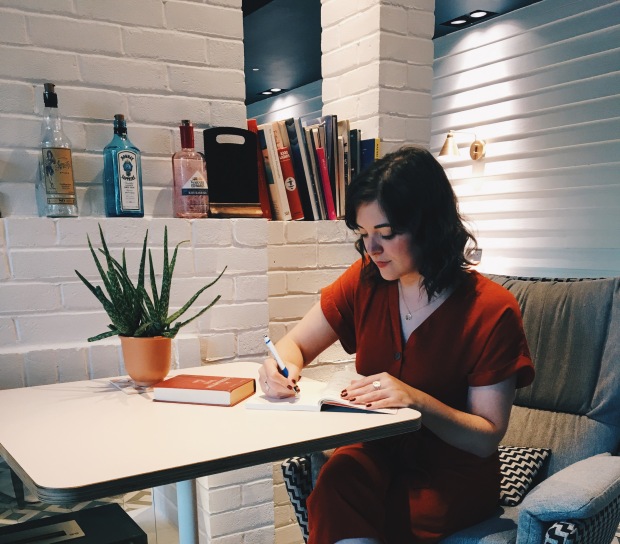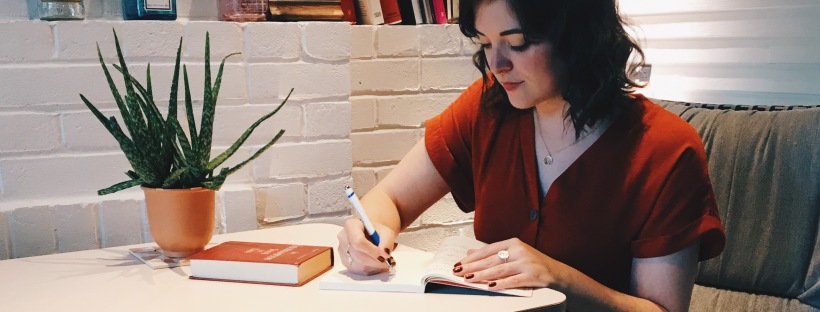What frustrates me the most about poetry is how inaccessible it is.
Or rather, how inaccessible it appears to be, so many people.
How it’s ‘not for everyone’.
When we are introduced to poetry in early childhood, we have fun. We read them rhymes out loud, enjoying the way they sound; we are encouraged to write short lyrics linked to our history lessons or science projects, connecting ideas and putting them into words. We’re asked to get creative, composing acrostic poems about our annoying brothers or favourite pets, or trying out a haiku or two.
We learn about rhyme and rhythm, and why poems work.
We learn that some poets use certain words and images to show something specific.
We learn that some types of poems are used for different things
Then, when we get older, we start picking apart what we’ve learned to put together, analysing every single word and beat of the poems forced in front of us. We obsess about how ‘the rain means the poet is sad’ (we all love a bit of pathetic fallacy) and how the use of rhyme in that war poem puts emphasis on nature, or death, or religion, or all of the above.
We tear these lines up and rack our brains trying to find out a deeper meaning, and we link what the poet was going through in real life to what was on the page.
And after all that, at the end of the day, we don’t want to look at another poem. We associate poetry with work; with GCSE English, and grades, and right or wrong answers, and sometimes failure, and so the stanzas become empty husks with no emotion left in them at all.
For many, anyway.
I do not speak from experience with this; personally, I took great joy in dissecting poems, uncovering ideas well below the surface, and relishing in the carefully chosen phrases. After taking my study of poetry right to postgraduate level, I’ve gone on to love poetry in my spare time – shock horror, for pleasure – and perhaps too presumptuously put ‘poet’ in my Twitter and Instagram bios. I will go to a poetry night for the sheer joy and inspiration of it, and I will want to discuss it with others.
But when I bring up poetry with some of my friends and family, it’s often met with a great, towering wall of NO.
“It’s not for me.”
“I don’t get it.”
It’s boring; it’s pretentious; it’s confusing; it’s too serious, too unfathomable, too complex, too unrelatable.
And sure, poetry isn’t for everyone; not everyone can like everything, obviously! I don’t like certain types of music, or horror films, or crime novels.
But we have been brought up seeing poetry as this thing to take very seriously; a high-culture something to think deeply about. And so, many people don’t think it’s for them.
And I don’t think that’s the case at all. I think poetry really is for everyone.
It’s time for this to change.

In my own little #amwriting bubble, I can see a resurgence of poetry in the media. Thanks to instapoets like Rupi Kaur, poetry is back on the radar again. Pockets of poets and publishers have a wider platform; indie bookstores and writers can share their work more widely. At the point of writing this, #poetry has over 24m posts on Instagram. Kate Tempest is a phenomenon. Nationwide are using poets in their advertising.
It is, if you will, a renaissance for rhythm and rhyme.
I am aware I am speaking from one perspective. I run in circles where poetry is more likely to be of interest. Creative writing, blogging, social media…if I weren’t involved in any of this, and had no passion for poetry at school, I’d probably be a bit oblivious to all of this. Or I’d notice it, and not care, or connect.
But it’s slowly happening. Poetry is finally working its way out of the classroom and the big dusty anthologies and onto our screens.
And at the same time as others who have been put off poetry, we have those for whom poetry is a niche that they aren’t willing to open up to others. Why do some view it as elitist? Because there are others, sadly, who want to keep it that way.
If we want poetry to be accessible, we not only need to get people to realise it’s not that boring subject you studied at school, but we also need to get others to stop their snobbery and elitism and accept all types of poetry into the fold, too. Modern stuff; work that probably wouldn’t exist without the help of social media.
Example: I personally am not Rupi Kaur’s biggest fan. Her pieces, while great, aren’t always too profound. Sometimes I do look at something and think ‘boy, anyone could do that.’ But I do not think of that as a negative (while others might.)
Really, it’s great, isn’t it? ANYONE can create poetry that’s beautiful and affecting and popular and resonating to someone. And anyone can enjoy it. It’s breaking down barriers and preconceptions. And although one thing may not be my cup of tea, it is for someone else, just as much as what I love, someone else will hate.
There are so many levels of poetry, for different tastes, occasions and needs. We just need to know where to look for them and how to share them for others to find and fall in love with.
Not a fan of heavy, emotive, or traditional poetry like Keats and Plath? Maybe more modern pieces by Hollie McNish and Charly Cox might be up your street. Poetry slams might excite you more than a traditional reading. Spend some time on Youtube and get sucked into the wormhole that is Button poetry.
If we really want to help people realise that poetry is for everyone, we’ve got to get out of the habit of ‘classing’ poetry. A poem that is fun, whimsical, nonsensical or simple is no less valuable to people and culture than one that explores the deep sense of self, or commemorates life-changing events, or tackles the world’s biggest injustices.
Spike Milligan’s pieces are silly and hilarious and seem to have no real point at all (if you don’t want to look too closely). One of my favourites, Michael Rosen, creates brilliantly charming and quirky poetry that appeals to children and grown-ups alike; it’s fun to read and raises a smile, and often, that’s enough.
I truly believe poetry is for everyone.
Fun poetry, sad poetry, complex poetry; poetry that makes noise, poetry that gets you thinking, poetry that connects with your feelings; poetry that makes no sense at all; poetry that builds on centuries of tradition, that tells a story, that uses structure (and doesn’t); poetry made up of a hundred stanzas, and poetry that exists on one line.
Poetry shaped like the thing it describes, scattered across the page like falling leaves, or poetry that looks more like an extract for a novel. Poetry that’s neat with rhythm and beat; poetry that runs on and on and on and on.
Poetry written by Wordsworth or William, aged 5, with crayon and a doodle.
It is all of value; it’s all important. Who cares if you just like the way it sounds? Does it matter if there’s no meaning in why words were chosen? So what if you don’t quite get why that line does what it does? And, to that end, who cares if you do like to dissect every line and look at it on another level?
Let’s all just enjoy poetry, however, we want to enjoy it; whether that’s with a hashtag or a degree with honours.
Let’s go back to before the classroom when it got complicated, and play with it, have fun with it, and see it how we want to see it.
Let’s remove the elitism, and the judgment, and the snobbery. You don’t have to like every book you read; the same goes for stanzas.
Poetry is for everyone. Let’s just have some fun.
Rhyme the hell not?

I have to admit I probably enjoy writing longer texts more than poems, but after I got the blog I have written a few poems as well 😊 I like the feeling of poems being a “glimpse” into a greater story 🙂
LikeLiked by 1 person
Yes! Yes! Yes! Rhyme the hell not??
LikeLiked by 1 person
Here here!
Give me something of passion and want. Someone who wants to feel what others have felt and/or express themselves through words that only they can say.
Poet should not be a four letter word. 🙂
LikeLike
Hey Jo, good sentiments here!
I have to share (if I am able to post links) Fry & Laurie’s little sketch on poetry which is great fun: https://www.youtube.com/watch?v=0nTmSu6v0LA
LikeLike
Rhyme the hell not indeed!
LikeLike
Well said! ☺️
LikeLike
Forty years ago (way before the internet) I used to write poetry, or at least my version of poetry. No one would publish it, because it was direct and said what I wanted it to say. I kept on writing for awhile, but eventually I stopped. It was one of the most depressing days of my life when I realized I had written nothing for a whole year.
That elitist position killed me. Just thought I would let you know.
LikeLike